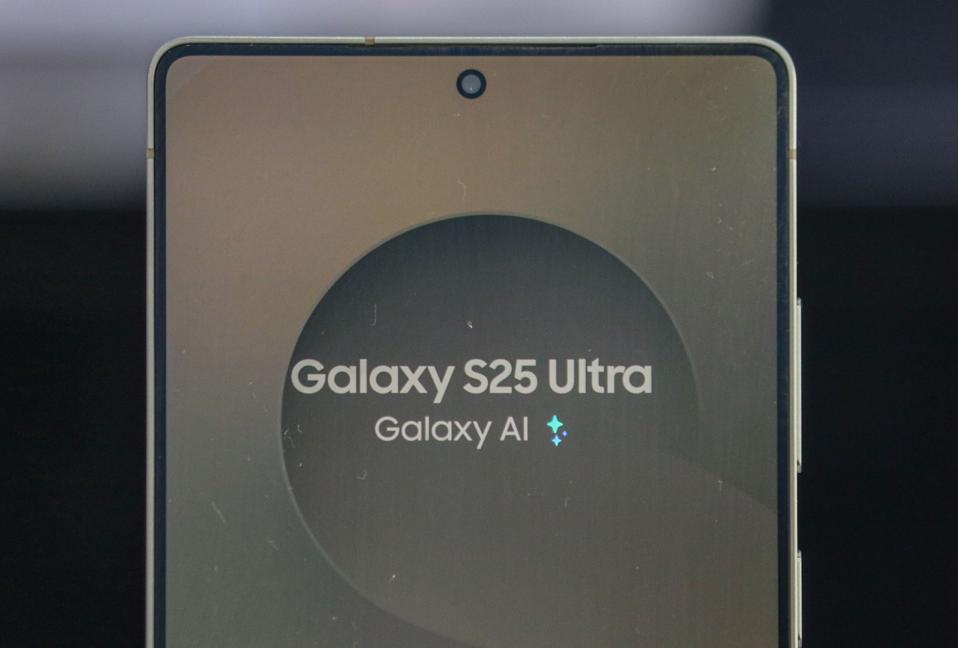
Samsung Confirms Upgrade Choice—Galaxy Users Must Now Decide
作者:Zak Doffman

This decision defines the future of your phone.
Republished on June 7 with reports into Google’s new decision for Android users.
A timely warning from Samsung this week, which neatly sets out the biggest upgrade decision now facing Android users. As whispers start to spread suggesting a disconnect between Samsung and Google at the heart of Android, this is critical.
We’re talking AI and the new features and offerings now hitting phones and PCs at breakneck speed. This is where Galaxy has an advantage, Samsung says, “in privacy-first, AI-powered experiences” which can “protect you in the era of AI.”
The question the Galaxy-maker asks in its latest post is the right one: “This level of personalization” brought by AI “can be incredibly helpful, but the more your phone knows, the more there is to protect. So, what’s keeping all that personal data secure?”
ForbesMicrosoft Issues Critical Windows Update—Do Not Delete This
Samsung’s answer is Knox. “Every Galaxy device is protected from the chip up by a multi-layered approach, which includes on-device personalization, user-controlled cloud processing, and ecosystem-wide protection through Samsung Knox Matrix.”
This is Samsung’s secure ecosystem that is the closest replica to Apple’s securely walled garden currently available on Android. “At the core of this system is Samsung Knox Vault, Samsung’s hardware-based solution for your most sensitive information.”
Knox is not new and neither is the concept of hardware-enabled Galaxy data security. What is new is segmenting sensitive the latest AI-related data from the rest, and securing that alongside the more traditional PINs, passwords and credit card numbers.
“Location service metadata from your most personal photos,” Samsung says, “could easily give away the exact location where the image was taken.” And there’s not much data more sensitive than who did what, where and when.
“In the era of AI, personal information like your home address, face clustering ID, person ID, pet type, scene type and more need to be encrypted and stored in a safe location. These things aren’t just files — they are deeply connected to your daily life.”
ForbesNew Chrome, Edge Warning—Update Browser By June 26 DeadlineBy Zak Doffman
It’s unclear exactly what is being or will be segmented and how this plays into the various opt-ins that Samsung has added to distinguish between on-device and cloud AI, between what is only within your secure enclave and what is outside.
But it’s difficult not to read this push as a play against the latest announcements from Google and the cloud-based AI that will now run riot across sensitive data, including emails and even cloud data storage. Yes, there are always opt-outs, but it’s all or nothing for users who want AI but are not yet worrying about privacy.
“As Galaxy AI becomes more useful,” Samsung says, “it also becomes more personal — learning how you use your device and adapting to your needs… Knox Vault is more than a security feature, it’s Galaxy’s promise that no matter how advanced your devices become, or how much AI evolves, your privacy is secured.”
Google, meanwhile, will not make this decision easy for Samsung user. No one is rolling out new smartphone AI innovations faster, and it will always overshadow what can be done if users take a privacy-centric, device-only approach.
Per Android Police, the latest update is “Google’s Gemini replacing Google Assistant as the default AI assistant, taking on all digital assistance responsibilities as Assistant is phased out later this year. Gemini is gaining ‘Scheduled Actions,’ allowing users to automate recurring tasks and information delivery at specific times.”
ForbesNew iPhone Spyware Attack Warning—This Is Apple’s ResponseBy Zak Doffman
This is the stepping stone to so-called Agenctic AI on phones, where monitoring data and events and activities enables an agent to make decisions autonomously on a smartphone owner’s behalf. This next step, with “Scheduled Actions streamlining routines [and] offering personalized updates,” is just the start.
As Mashable says, “When combined with computer vision, which is what allows a model to ‘see’ a user’s screen, we get the agentic AI everyone is so excited about… Agentic AI tools could order groceries online, browse and buy the best-reviewed espresso machine for you, or even research and book vacations. In fact, Google is already taking steps in this direction with its new AI shopping experience.”
Allowing AI access to smartphones with all the data and insight they contain, pushed this to a level even beyond Windows’s controversial Recall. It’s decision time.
